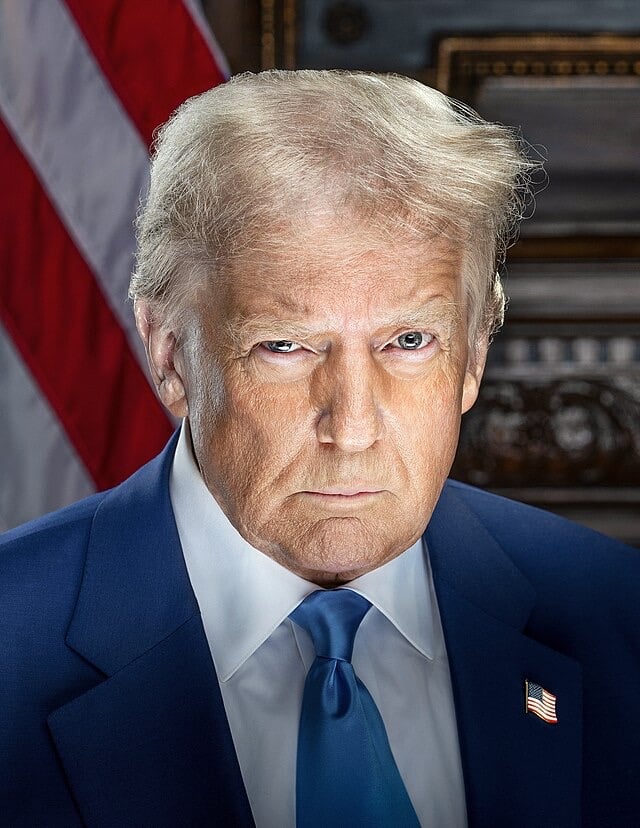The ongoing Russia-Ukraine war continues to escalate, with recent developments capturing global attention and shaking up international diplomacy. The world was left stunned as Kyiv, Ukraine’s capital, came under a brutal missile and drone assault, resulting in at least 12 civilian deaths and over 90 injuries. The attack was not just another tragic chapter in this drawn-out conflict—it marked a significant turning point.
In a move that surprised both critics and supporters alike, former U.S. President Donald Trump issued a stern warning to Russian President Vladimir Putin. Breaking from his usual ambiguity on Russian affairs, Trump took to Truth Social, saying bluntly: “Vladimir, STOP! Let’s get the Peace Deal DONE!” This post sent shockwaves through political circles and media outlets worldwide, especially as Trump paired his criticism of Putin with pressure on Ukrainian President Volodymyr Zelenskyy, urging peace while blaming Kyiv for prolonging the conflict by refusing to concede Crimea.
So, what does this mean for the war, for peace talks, and for global diplomacy moving forward? Let’s dive into the story behind the headlines.
The Attack on Kyiv
Details of the Russian Assault
In the early hours of the morning, as most of Kyiv was still asleep, air raid sirens blared across the city. What followed was one of the most intense bombardments in recent months. Russian forces unleashed a coordinated barrage involving ballistic missiles and Iranian and North Korean-supplied drones, targeting civilian areas and infrastructure.
Kyiv’s emergency services reported that at least 12 people died, including children, and over 90 others were injured. Apartment buildings, schools, and hospitals were among the buildings hit, with images of the destruction flooding social media platforms. Ukrainian officials condemned the attack as a “deliberate strike on civilians” and vowed retaliation.
This wave of violence came at a time when diplomatic channels appeared to be reviving, with whispers of a possible ceasefire agreement. Instead, the attack threw everything back into chaos, intensifying global scrutiny and drawing reactions from world leaders.
Civilian Impact and Response
The aftermath of the attack was harrowing. Families were pulled from rubble. Emergency responders worked around the clock. Schools were forced to shut down again, and entire neighborhoods lost access to electricity and water. Trauma centers were overwhelmed, and international aid groups immediately ramped up their operations.
The Ukrainian people, resilient yet visibly exhausted, expressed anger not only at Russia but also at the international community’s slow and measured responses. Public sentiment is hardening, with growing calls for stronger retaliation and a firmer Western response.
The Ukrainian government declared a national day of mourning, while President Zelenskyy cut short his diplomatic trip to South Africa and returned to Kyiv. His message was clear: “Russia’s terrorism will not go unpunished.”
Trump’s Public Reaction
The Truth Social Statement
Donald Trump, often known for his complex and sometimes controversial foreign policy positions, made headlines again—but this time, not for silence or ambiguity. Following the attack, Trump posted on his Truth Social account: “I am not happy with the Russian strikes on KYIV. Not necessary, and very bad timing. Vladimir, STOP! 5000 soldiers a week are dying. Let’s get the Peace Deal DONE!”
The language was unusually direct. Trump openly called on Putin to stop, marking one of the few times he has directly criticized the Russian leader. Simultaneously, he also accused Zelenskyy of “prolonging the war” by refusing to negotiate Crimea’s status, a stance that has sparked backlash both in the U.S. and abroad.
This dual-pronged message—criticizing both Russia and Ukraine—left many puzzled. Was Trump trying to position himself as a peace broker? Or was this a strategic political move ahead of the 2024 presidential elections?
Why This Statement Is Significant
Trump’s message matters because it signals a potential shift in U.S. political rhetoric on Ukraine. Unlike current President Joe Biden, who has remained steadfast in supporting Ukraine without territorial concessions, Trump seems to suggest a more “transactional” approach: give up Crimea for peace.
Moreover, his open call to Putin puts pressure on Republican lawmakers who have hesitated to support additional Ukraine aid. Trump’s base often echoes his statements, and his message could influence public opinion and legislative decisions.
Historically, Trump has been criticized for being soft on Putin. His public rebuke, even if limited, disrupts that narrative. Whether genuine or strategic, it’s a moment that could reshape the dialogue around U.S. involvement in the war.
Global Diplomatic Reactions
European Allies Respond
Unsurprisingly, European leaders were quick to respond to the escalating situation. French President Emmanuel Macron condemned the strikes, calling them “acts of cowardice against innocent people.” The French Foreign Ministry released a sharp statement reaffirming France’s unwavering support for Ukraine and denouncing any suggestion of territorial compromise.
Germany, the UK, and the Baltic states echoed similar sentiments. The consensus in Europe remains firm: no recognition of Crimea as Russian territory, no concessions under pressure.
NATO Secretary-General Jens Stoltenberg called for a special meeting of the alliance to discuss renewed military and humanitarian aid to Ukraine. “This is not just about Ukraine; this is about the integrity of the international rules-based order,” he emphasized.
Ukraine’s Leadership Stance
President Zelenskyy has been unyielding in his position. In a press conference upon his return to Kyiv, he declared, “We will not surrender our land. Not Crimea, not Donetsk, not Luhansk. Ukraine will remain whole.”
Zelenskyy’s strong stance has gained both admiration and criticism. While he is lauded for his courage and leadership, some critics argue that his rigid position could prolong the conflict. However, to most Ukrainians, yielding territory means surrendering their sovereignty—a price they’re unwilling to pay.
Ukraine continues to call on international allies to increase pressure on Russia, including stricter sanctions and enhanced military aid.



